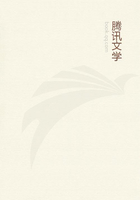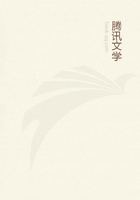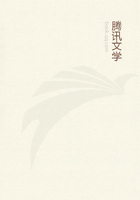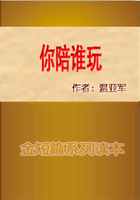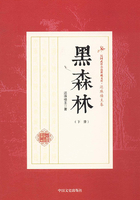He wrote against the liturgy of the Church of England.No two things, according to him, had less affinity than the form of prayer and the spirit of prayer.Those, he said with much point, who have most of the spirit of prayer are all to be found in gaol; and those who have most zeal for the form of prayer are all to be found at the alehouse.The doctrinal articles, on the other hand, he warmly praised, and defended against some Arminian clergymen who had signed them.The most acrimonious of all his works is his answer to Edward Fowler, afterwards Bishop of Gloucester, an excellent man, but not free from the taint of Pelagianism.
Bunyan had also a dispute with some of the chiefs of the sect to which he belonged.He doubtless held with perfect sincerity the distinguishing tenet of that sect; but he did not consider that tenet as one of high importance, and willingly joined in communion with quiet Presbyterians and Independents.The sterner Baptists, therefore, loudly pronounced him a false brother.Acontroversy arose which long survived the original combatants.
In our own time the cause which Bunyan had defended with rude logic and rhetoric against Kiffin and Danvers was pleaded by Robert Hall with an ingenuity and eloquence such as no polemical writer has ever surpassed.
During the years which immediately followed the Restoration, Bunyan's confinement seems to have been strict.But, as the passions of 1660 cooled, as the hatred with which the Puritans had been regarded while their reign was recent gave place to pity, he was less and less harshly treated.The distress of his family, and his own patience, courage, and piety softened the hearts of his persecutors.Like his own Christian in the cage, he found protectors even among the crowd of Vanity Fair.The bishop of the Diocese, Dr Barlow, is said to have interceded for him.At length the prisoner was suffered to pass most of his time beyond the walls of the gaol, on condition, as it should seem, that he remained within the town of Bedford.
He owed his complete liberation to one of the worst acts of one of the worst governments that England has ever seen.In 1671 the Cabal was in power.Charles II.had concluded the treaty by which he bound himself to set up the Roman Catholic religion in England.The first step which he took towards that end was to annul, by an unconstitutional exercise of his prerogative, all the penal statutes against the Roman Catholics; and, in order to disguise his real design, he annulled at the same time the penal statutes against Protestant nonconformists.Bunyan was consequently set at large.In the first warmth of his gratitude he published a tract in which he compared Charles to that humane and generous Persian king who, though not himself blest with the light of the true religion, favoured the chosen people, and permitted them after years of captivity, to rebuild their beloved temple.To candid men, who consider how much Bunyan had suffered, and how little he could guess the secret designs of the court, the unsuspicious thankfulness with which he accepted the precious boon of freedom will not appear to require any apology.
Before he left his prison he had begun the book which has made his name immortal.The history of that book is remarkable.The author was, as he tells us, writing a treatise, in which he had occasion to speak of the stages of the Christian progress.He compared that progress, as many others had compared it, to a pilgrimage.Soon his quick wit discovered innumerable points of similarity which had escaped his predecessors.Images came crowding on his mind faster than he could put them into words, quagmires and pits, steep hills, dark and horrible glens, soft vales, sunny pastures, a gloomy castle of which the courtyard was strewn with the skulls and bones of murdered prisoners, a town all bustle and splendour, like London on the Lord Mayor's Day, and the narrow path, straight as a rule could make it, running on up hill and down hill, through city and through wilderness, to the Black River and the Shining Gate.He had found out, as most people would have said, by accident, as he would doubtless have said, by the guidance of Providence, where his powers lay.He had no suspicion, indeed, that he was producing a masterpiece.
He could not guess what place his allegory would occupy in English literature; for of English literature he knew nothing.
Those who suppose him to have studied the Fairy Queen might easily be confuted, if this were the proper place for a detailed examination of the passages in which the two allegories have been thought to resemble each other.The only work of fiction, in all probability, with which he could compare his Pilgrim, was his old favourite, the legend of Sir Bevis of Southampton.He would have thought it a sin to borrow any time from the serious business of his life, from his expositions, his controversies, and his lace tags, for the purpose of amusing himself with what he considered merely as a trifle.It was only, he assures us, at spare moments that he returned to the House Beautiful, the Delectable Mountains, and the Enchanted Ground.He had no assistance.
Nobody but himself saw a line, till the whole was complete.He then consulted his pious friends.Some were pleased.Others were much scandalised.It was a vain story, a mere romance, about giants, and lions, and goblins, and warriors, sometimes fighting with monsters and sometimes regaled by fair ladies in stately palaces.The loose atheistical wits at Will's might write such stuff to divert the painted Jezebels of the court:
but did it become a minister of the gospel to copy the evil fashions of the world? There had been a time when the cant of such fools would have made Bunyan miserable.But that time was passed; and his mind was now in a firm and healthy state.He saw that, in employing fiction to make truth clear and goodness attractive, he was only following the example which every Christian ought to propose to himself; and he determined to print.

